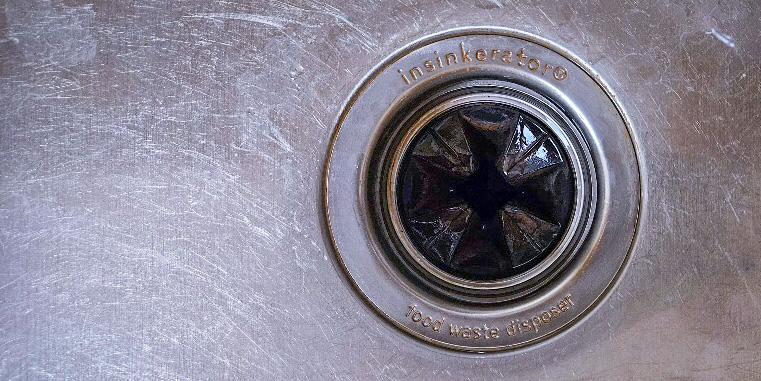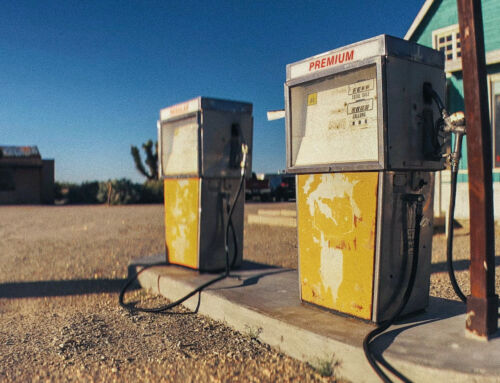View by Topic
Recent Articles
-
Congress Blocks California’s Gasoline Car BanSaturday, May 31st, 2025
-
EPA Will Keep Current Limits for “Forever Chemicals” in Drinking WaterSaturday, May 24th, 2025
-
Court Indefinitely Pauses SEC Climate Rule LitigationSaturday, May 17th, 2025
-
Maryland is About to Regulate Mold But is the Cart Before the HorseSaturday, May 10th, 2025
View by Month/Year
“Green Building Law Update” Headlines
Recent Articles & News from
Stuart Kaplow’s blog
at GreenBuildingLawUpdate.com
- Congress Blocks California’s Gasoline Car Ban: A Legal and Policy Analysis June 1, 2025
- EPA Will Keep Current Limits for “Forever Chemicals” in Drinking Water May 25, 2025
- Court Indefinitely Pauses SEC Climate Rule Litigation May 18, 2025
- Maryland is About to Regulate Mold: But is the Cart Before the Horse? May 11, 2025
Subscribe to the Green Building Law Update!
Stuart Kaplow brings his expertise and extensive experience to the table with his unique digital publication, "Green Building Law Update". Subscribers receive regular updates to keep them informed about important issues surrounding Environmental Law, Green Building & Real Estate Law, as well as the emerging demand for Environmental Social Governance (ESG).
Get fresh content through the lense of Stuart Kaplow's cutting-edge expertise, innovative commentary and insider perspective. Don't miss another issue! Subscribe below.

How Garbage Disposals Fight Climate Change
In our daily efforts to lead eco friendly lives, we often overlook a humble but powerful tool right in our kitchens, the in sink garbage disposal. It is sad but there is no dispute that more than one third of the food produced in the United States is never eaten, wasting not only the food itself but also creating a multitude of environmental externalities, among the most significant being methane produced from food waste disposed of in landfills.
While reducing waste and composting have their merits, installing and using an under the sink garbage disposal is more than just an incredibly effective way, it is a silver bullet to combat climate change by keeping food waste out of landfills.
The Problem with Food Waste
Food waste is “the” largest category of material in municipal landfills, contributing significantly to methane emissions. Methane is a potent greenhouse gas, with a global warming potential many times greater than the vilified carbon dioxide. Over a period of 20 years, methane has a global warming potential of 84 (i.e., a tonne of methane emissions today will have 84 times the effect of warming the atmosphere than carbon dioxide which has a GWP of 1).
When food waste decomposes anaerobically (without oxygen) in landfills, it generates methane, accounting for more than 58% of fugitive methane gas emissions. This makes landfills a major source of methane, greatly exacerbating climate change. And yes, cow burps are a source of methane, but when viewed in perspective if every dairy and farm cow were eliminated that would result in greenhouse gas emissions being reduced by less than 0.7% (.. and I am not giving up the milk in my Frappuccino).
The Role of In Sink Garbage Disposals
An unpublished academic manuscript currently undergoing peer review identifies in sink “garbage disposals in homes as offering the single most efficacious solution to this methane problem.” These devices grind food scraps into fine particles that can be safely washed down the drain and processed at wastewater treatment plants. Modern wastewater treatment facilities often capture methane from organic waste and convert it into biogas, a renewable energy source. Processing food scraps through the existing sewerage systems (.. more than 83% of U.S. households are connected to public sewerage) dramatically reduces the methane emissions that would otherwise occur if the food waste were left to decompose in a landfill.
Garbage disposal units were invented in the United States in 1927. Today just about 50% of homes in the U.S. have garbage disposals and many of those units are not utilized on a daily basis.
Interestingly, disposals “grind” food scraps and do not chop them, but that doesn’t mean it is safe to put your hand down the sink; there are still rotating impellers.
The Environmental Impact
By using a garbage disposal, households can drastically reduce the amount of organic waste sent to landfills. This, in turn, reduces methane emissions and helps slow the acceleration of a dangerous climate change gas. As made clear by a U.S. Department of Agriculture study, installing and using an in sink garbage disposal is the number one action American households can take to mitigate methane emissions and contribute to a healthier planet.
Complementary Practices: Reducing Waste and Composting
While garbage disposals play a crucial role, they work best when combined with other organic material waste reduction practices.
Reducing the quantity of food waste and composting suitable scraps can further minimize the environmental impact. Composting converts organic waste into nutrient rich soil, benefiting gardens and reducing the need for chemical fertilizers. Together, these practices form a comprehensive approach to managing food waste sustainably concomitantly addressing climate change.
Why are we Not Installing Garbage Disposals?
In sink garbage disposals, quite possibly among the lowest tech, geoengineering solutions to climate change, don’t fit nicely into apocalyptic environmentalists’ self described moral imperative that humankind drastically reduces consumption before our growing numbers and appetite, including food waste, overwhelm the planet.
The climate change industrial complex does not want to look toward innovating our way out of these issues (e.g., the Maryland Department of the Environment is proposing energy rationing through a BEPS program, including without any serious consideration of elastocaloric cooling being studied by professors at the State’s own university, and without implementing geoengineering solutions that exist today, like garbage disposals). Maryland bureaucrats’ plan for economic stasis made little sense when that debunked philosophy was articulated by Thomas Malthus and today is among the range of climate change public policies that will not be tolerated by the citizens of the State as a regulatory proposal to ration electricity to reduce greenhouse gases. Maybe the Maryland government should propose ‘a chicken in every pot and a garbage disposal under every sink’?
Conclusion
The sweet spot in managing food waste lies in integrating garbage disposals into every kitchen sink. This simple yet effective tool not only keeps food scraps out of landfills and also transforms waste into a resource significantly reducing methane emissions. But in sink macerators, while possibly among the lowest tech, geoengineering solutions to climate change, don’t fit into the talking points of the apocalyptic global warning industrial complex.
And maybe in this newfound role for the 90 year old kitchen appliance should not call them garbage disposals given that they do not handle garbage (including no plastic, paper, metal or ..), but are designed only for a range of food waste? Maybe “food waste disposers” or “electric pigs” or ..
By embracing in sink garbage disposals and complementing them with waste reduction and composting efforts, we can all play a part in slowing climate change and creating a more sustainable future.
___________________
Please join us for our webinar “With ‘new’ proposed Maryland BEPS regulations what does a Building Owner do now?” on Tuesday, August 13 from 9 – 9:30 am EDT presented by Stuart Kaplow. The webinar is complimentary, but you must register here.









